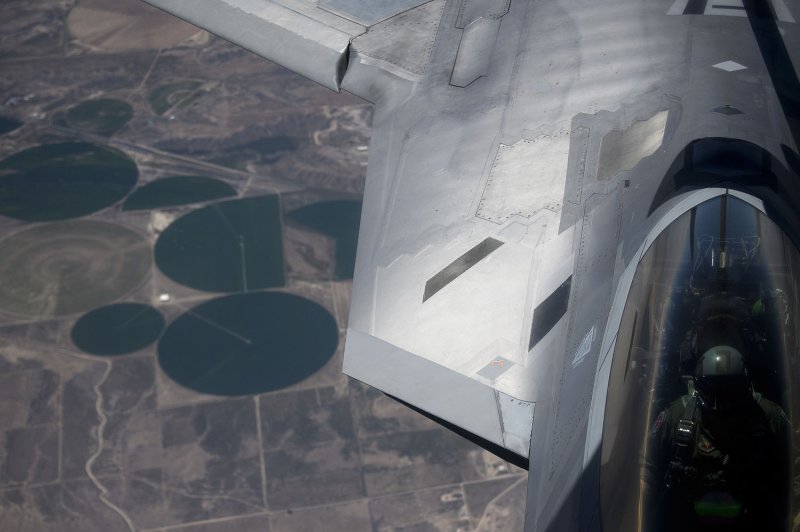Florida lawmakers say the Pentagon is concerned about the potential for more oil and gas drilling in the Gulf of Mexico. U.S. Air Force photo by David Salanitri |
License Photo
May 3 (UPI) -- A letter viewed by Florida lawmakers from the Pentagon said maintaining a moratorium on drilling in parts of the Gulf of Mexico was in the nation's interest.
A letter from the Department of Defense to U.S. Rep. Matt Gaetz, D-Fla., expressed concern about recent executive action from President Donald Trump that could open up more offshore areas for drilling.
Anthony Kurta, acting undersecretary of defense for personnel and readiness, said in the letter that keeping parts of the Gulf of Mexico off limits beyond 2022 was essential for developing future combat readiness.
"The Department of Defense cannot overstate the vital importance of maintaining this moratorium," the letter read.
The April letter to Gaetz was obtained by the office of Sen. Bill Nelson, D-Fla., and sent to UPI on Wednesday.
The Florida senator pushed bipartisan legislation in 2006 that banned oil and drilling in the state waters of the Gulf of Mexico through 2022. In January, Nelson called for an extension of that moratorium for another five years.
Speaking on the Senate floor last week, Nelson said more drilling in parts of the Gulf of Mexico and in the Atlantic would interfere with everything from tourism dollars to the environment and military training in the region. Nelson's office told UPI on Wednesday that Nelson is working on legislation to clarify for the Pentagon that the moratorium applies to seismic testing as well.
Energy companies use seismic surveys to get a better understanding of the oil and gas reserve potential and some groups have expressed concern that action could have a detrimental impact on marine ecosystems. Seismic research could interfere with normal communication patterns for some marine species, though contractors said the impacts are temporary.
The Pentagon said last year there may be areas of potential oil and gas work in the Atlantic that may not be compatible with defense operations and interests.
Eight new fields in the U.S. waters of the Gulf of Mexico started producing oil last year, leading to a high-water mark of 1.6 million barrels per day, beating the previous record set in 2009 by 44,000 barrels per day. By January, regional offshore production was up another half million barrels on a daily basis.















